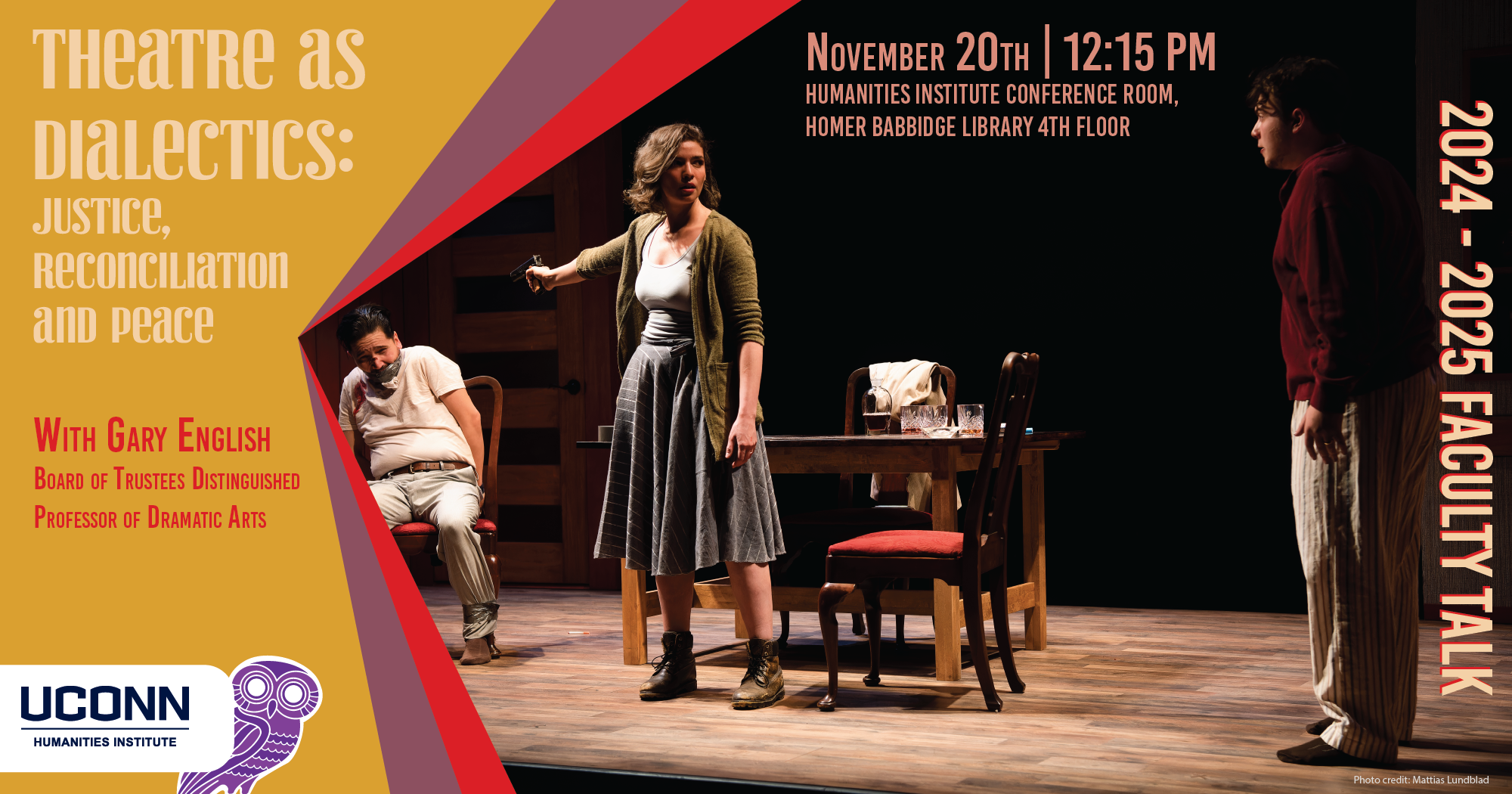Theatre as Dialectics: Justice, Reconciliation, and Peace
Gary M. English (Board of Trustees Distinguished Professor of Dramatic Arts, UConn)
Wednesday November 20, 2024, 12:15pm, Humanities Institute Conference Room (HBL 4-209)
The event will also be livestreamed with automated captioning.
Register to attend virtually
Theatre and other forms of cultural production provide a valuable means to discover how populations respond to forms of oppression and political processes connected to attempts at reconciliation in post-conflict. To attain a renewed national unity in some post-conflict settings, states and international organizations who pursue the dual objectives of peace and reconciliation utilize forms of transitional justice that emphasize the “healing” of victims and the reintegration of perpetrators as a higher priority than criminal accountability through rule of law. A dialectic, or dichotomy, then emerges between the objectives of justice, through accountability, and reconciliation such that imperatives for peace and stability allow one to be sacrificed to achieve the other. Employing research connected to the emerging discourse on irreconciliation and dynamics related to the dualities of “memory and forgetting” and “justice and reconciliation” Gary English explores how theatre production critiques this dichotomy by insisting that justice and a positive peace cannot be achieved without criminal accountability regarding the most egregious violations of international law. In addition, this talk examines how accountability through international law becomes frustrated by the strategic interests of donor states who utilize coercive approaches in development to enforce an unjust, or negative peace that essentially maintains the underlying forms of oppression as historically practiced.
Gary M. English is stage director, designer, and a Distinguished Professor of Drama at the University of Connecticut and Affiliate Faculty with the Gladstein Family Human Rights Institute with whom he has taught Theatre and Human Rights for ten years. From 2010 through 2018, he lived and worked in the West Bank for a total of four years, including two years in the Jenin Refugee Camp where he served as Artistic Director of The Freedom Theatre, (2012–13). He also served as Visiting Professor and Head of the Media Studies program at Al/Quds Bard College in Abu Dis, in the West Bank, (2017–18). His research focuses on theatre as a methodology to study human rights, and the use of theatre and cultural production to investigate the political conflict between Israel and Palestinians. His most recent book, Theatre and Human Rights: The Politics of Dramatic Form was published by Routledge in August, 2024. Previous publications include the volume, Stories Under Occupation and other Plays from Palestine, co-edited with Samer Al-Saber, and published by Seagull Press in 2020, and “Artistic Practice and Production at the Jenin Freedom Theatre” within the anthology, Theater in the Middle East: Between Performance and Politics. His most recent essay, “Palestinian Theatre: Alienation, Mediation and Assimilation in Cross Cultural Research” was recently released in the volume, Arabs, Politics and Performance, by Routledge in September, 2024.
Access note
If you require accommodation to attend this event, please contact us at uchi@uconn.edu or by phone (860) 486-9057. We can request ASL interpretation, computer-assisted real time transcription, and other accommodations offered by the Center for Students with Disabilities.


